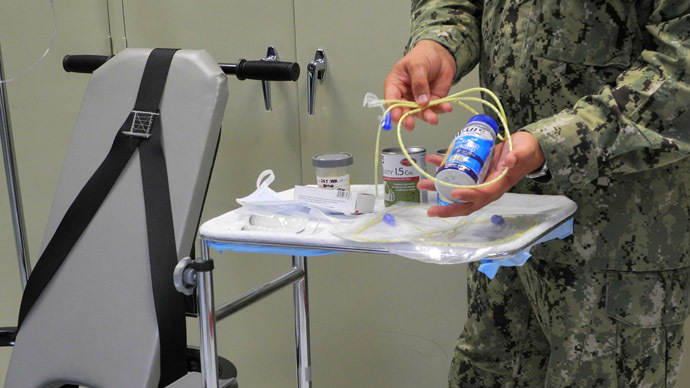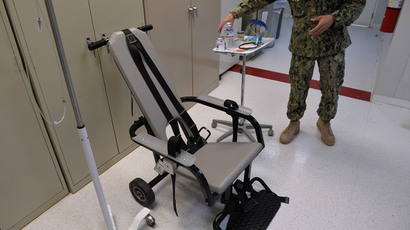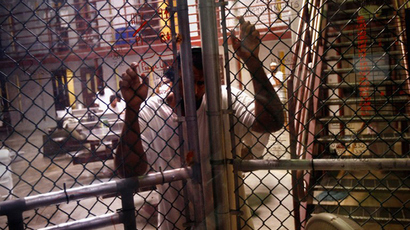US judge lifts ban on Guantanamo prisoner force-feeding ‘not to let him die’

US District Judge Gladys Kessler ordered that her previous temporary restraining order to stop forcibly feeding Syrian Abu Wa’el Dhiab will not be reissued, due to the prisoner's physical condition 'swiftly deteriorating' due to a hunger strike.
The ruling follows a decision barring the Pentagon from
force-feeding the 42-year-old Dhiab, who has gone on prolonged
hunger strikes while being held for 12 years without a trial. The
prisoner has been force-fed by the military and filed a petition
to stop the enteral feeding practice.
The procedure involves strapping a detainee into a chair and
pouring a liquid nutritional supplement right into the stomach
through a nasal tube. In a legal filing from Dhiab he describes
the pain caused by the method: “Sometimes the way the MP
[military policeman] holds my head chokes me, and with all
the nerves in the nose the tube passing the nose is like
torture."
The judge did not keep her previous order to stop Dhiab's
sufferings in place as a legal fight unfolds, according to her
ruling, in order to keep him alive. “Mr. Dhiab may well
suffer unnecessary pain from certain enteral feeding practices
and forcible cell extractions. However, the Court simply cannot
let Mr. Dhiab die,” Kessler’s ruling reads.
The federal judge has 'strongly suggested' to consider
alternative ways to keep the prisoner alive. "Mr. Dhiab has
indicated his willingness to be internally fed, if it could be
done at the hospital in Guantanamo Bay, if he could be spared the
agony of having the feeding tubes inserted and removed for each
feeding, and if he could be spared the pain and discomfort of the
restraint chair," Kessler said in the ruling. Although, the
military command overseeing Guantanamo detentions deny the
procedure is abusive and “the Department of Defense refused
to make these compromises.”
The recent rulings promise to keep attention on the controversial
force-feeding practices, as the federal court ordered the
potentially embarrassing videos depicting the treatment to be
released. On Friday, Kessler said in a scheduling order that US
government must reveal videos of the practice criticized as
abusive, to be viewed by the detainee's lawyers by June 13 - the
first time a non-government official will be permitted to see the
secret recordings.
Guantanamo prisoners have engaged in hunger strikes for years.
Abu Wa’el Dhiab was recommended for transfer from Guantanamo more
than four years ago. At one point, when it appeared to him
release might be imminent, he suspended his hunger strike for a
brief period. He later resumed the protest against confinement.














